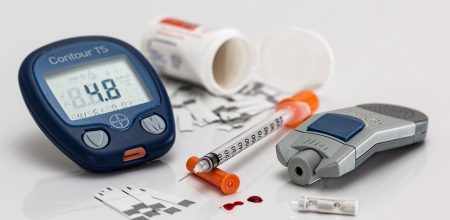Are you worried you might develop some complications as a result of your diabetes? You should go over this article for some helpful tips you can use to avoid any complications.
It is important to meet with your doctor so a professional can keep track of how your condition is progressing. You should find a family doctor you can meet with at least once a month. Once you are more comfortable with managing your diabetes by yourself, meet with your doctor less regularly. Stay in touch with your doctor so you can get some useful advice if you notice something unusual.
You should check your blood sugar levels as often as possible. The best way to avoid complications is to keep your sugar level under a healthy limit. Check your blood sugar before and after eating or anytime you feel tired or dizzy. Try measuring your blood sugar regularly throughout the day. Your blood sugar should not be less than 70 milligrams per deciliter before a meal. Check your blood sugar again after eating and use insulin if it is over 140 milligrams per deciliter.
Losing some weight can help you keep your blood sugar down. Your blood sugar level will not spike as much once you reach a healthy weight. You can lose weight by adopting a healthy diet and getting some light exercise. Go for a walk once a day or find another exercise you enjoy. Get some help from a nutritionist if you are not sure how you can adopt a healthy diet. Do a lot of research on your condition to get a better idea of what you can do to adopt a healthier lifestyle.
Adopt an excellent hygiene. A high blood sugar level makes you more likely to develop infections. You should always wear protective shoes and clothes to avoid cuts or bruises. Adopt an excellent oral hygiene so you can prevent gum diseases. Keep your home clean and take a daily shower. You should clean your feet twice a day if you can. If you notice a small cut, disinfect it regularly and meet with your doctor to make sure you are properly cleaning the small wound.
Follow a regular schedule. Your blood sugar level should be much easier to control if you always eat at a fixed hour. Wake up early every day and have a healthy breakfast. Try having six small meals during the day instead of three large meals. A small meal will not make your blood sugar level spike and will help you keep your energy level up during the entire day. Go to bed at a reasonable hour so you can follow the same routine the next day. You will quickly get used to this schedule and your blood sugar level should be easier to control.
Avoiding complications linked to diabetes is a possibility but you will have to make significant changes to your lifestyle. Apply all the tips from this article and talk to your doctor about additional strategies you can use.
How to Handle Diabetes Like a Pro
You may not feel that diabetes is a blessing. And it is true, diabetes can often be hard to get under control and difficult to see your way to the end of. However, that doesn’t mean that you can’t deal with it. In fact, if you just make a few adjustments, you will find that your life begins to open up again. Here are some wise suggestions that you can use to better handle your diabetes.
Get your body weight under control. This may not be the first thing you think about, but you need to know that losing even a little bit of weight can change your body chemistry enough to lower the dosage of your medication or eliminate it altogether. That’s why exercise is such a good idea for diabetics. Not only that, but exercise can be a great way for you to get fit and solve a number of other health problems, both physical and mental. You don’t need to go to the gym. You just need to get moving and stay active.
Be aware of what you’re putting in your mouth at any point of the day. What you eat is really important when you have diabetes, and you have to watch and see how different meals affect your blood sugar levels. You don’t need to of course, but if you want to really get a handle on what your blood sugar levels are doing, you must monitor your food and drink intake before and after meals. This way, you will see which foods are not great for you, and which foods you can eat without a problem.
Watch for sores and cuts. Diabetics can have slow healing when they are hurt, but what is worse, they can develop nerve damage that may not even alert them to the fact that they have a cut or a sore. That’s why you need to be very careful about checking your feet especially, since the feet are the area that diabetics have problems with the most. Feet are the furthest away from the heart, and can have circulation problems and other kinds of problems. Make sure you monitor your body for any injuries and to monitor healing as well.
Talk to your family and friends about your disease. They may not know much at all about diabetes. They are going to need to be told the basics of the disease and what your body is doing, as much as possible. They care about you, so they will want to help. Just make sure that you tell them you have it under control. Remind them that diabetes is not your entire life, though. Make it clear that you still plan to have a great life.
Taking control of your diabetes and really starting to own your body again feels great. You just need to think about what you want to accomplish, and use the tips in this article to make sure that you do what you need to do. Diabetes doesn’t have to take over your life, and it won’t if you use the information here.



